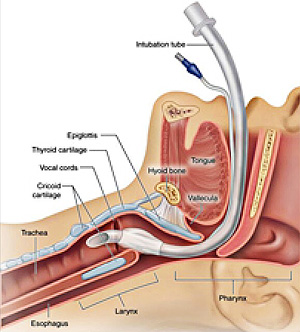- Question: How do the ingredients in e-cigarettes and vaporizers affect respiratory health? - August 16, 2019
- Bad Technique and Vocal Injury - January 9, 2019
- Is Edible Marijuana Dangerous for the Voice? Myths Dispelled - December 18, 2018
- Surprise! You have a hemorrhage - January 31, 2018
- Graves’ Disease: Treatment Overview - September 25, 2017
- Adele and the Stigma of Vocal Injury - July 11, 2017
- Vocal Curbside Consult: How does the thyroid affect the voice? - May 16, 2017
- Vocal Curbside Consult: How do hormones affect the voice? - May 3, 2017
- Vocal Curbside Consult: How do emotion and stress affect the voice? - April 17, 2017
- Vocal Curbside Consult: Vocal Recovery After Illness - April 7, 2017

Kelly Rowland recently admitted to getting breast implants. The former Destiny’s Child songstress openly admits to considering doing this for a decade. Now, having done it, she claims having no regrets. But would she have made the same decision if she’d known this surgery could affect her singing voice permanently?
Many singers undergo surgical procedures for a variety of health reasons. This is not the group we are talking about, although the risks to the voice are the same. In a time where appearance is as important as your singing voice, many singers choose to undergo elective surgery to enhance their appearance. We’ve become so desensitized to cosmetic surgery that the worst outcome we can think about with cosmetic surgery is having a poor cosmetic outcome.
But what about the real risk to the voice?
Did you know that every time you have surgery, there is a very high likelihood you will be intubated? This means having a breathing tube placed in your throat to help you breathe, because during surgery your muscles are paralyzed and you will not be able to breathe for yourself.
What people don’t realize is that having a breathing tube placed in your throat means having a hard plastic tube placed between your vocal cords.

Does it matter if I am intubated if it’s not for vocal cord surgery?
Intubation risks vocal cord injury, even if you are not having vocal surgery. This is because intubation can cause:
- Dislocation of your vocal cord
- Injury to the lining of your vocal cord
- Granuloma formation
- Partial or total paralysis of your vocal cord
What does that mean?
Dislocation of your vocal cord, or more specifically the cartilage that attaches to your vocal cord, can happen if your breathing tube is placed without perfect visualization of your vocal cords. It seems that this should not be difficult; however, most anesthesiologists do not visualize your entire vocal cords. The back half is often considered a sufficient view for tube placement.
Therefore, if the tube is placed without seeing the whole cord, the tube can knock the cartilage because it is a somewhat blind procedure.
Injury to the lining means that the delicate lining of your vocal cord can be damaged. When the tube is placed, because it is done somewhat blindly, the tube can rub and abrade (or scrape) the vocal lining. The resultant injury is irreversible.
Granulomas form when a breathing tube is left in place for a long time, although sometimes it can happen quickly. This happens because the lining of the cartilage gets rubbed away and the cartilage is exposed. Any further injury (such as acid reflux, which happens all the time) makes that cartilage react. The reaction that occurs is a granuloma.
Partial or total paralysis happens in surgery, even if the surgery does not involve the neck. This is thought to be because the breathing tube puts pressure on the vocal nerves. The resulting weakness can be temporary or permanent but can cause severe symptoms. However, neck surgery puts the voice nerves at a significantly higher risk.
A singer undergoing neck surgery needs close pre- and post-operative care by a laryngologist as well as a neck surgeon with significant expertise in protecting voice nerves.
The bottom line is that no surgery is benign and no surgery that involves intubation (which is most surgery) is risk-free for your voice. I strongly encourage any singer who is undergoing any surgery that requires general anesthesia and intubation to have a preoperative and postoperative voice evaluation. Neck surgery requires even greater care. Talk to your laryngologist before having neck surgery to really understand risks and how to avoid them. This will involve:
- Stroboscopy
- Laryngoscopy to look for pre-existing vocal weakness
For more information about caring for the professional voice, visit the comprehensive resource guide at: http://www.voicedoctorla.com/.
Contact a Physician at Osborne Head & Neck Institute
If you would like to speak with one of our physicians regarding this issue or another ear, nose, throat problem; or have other questions or concerns, please complete the contact form below or call us at 310-657-0123.



